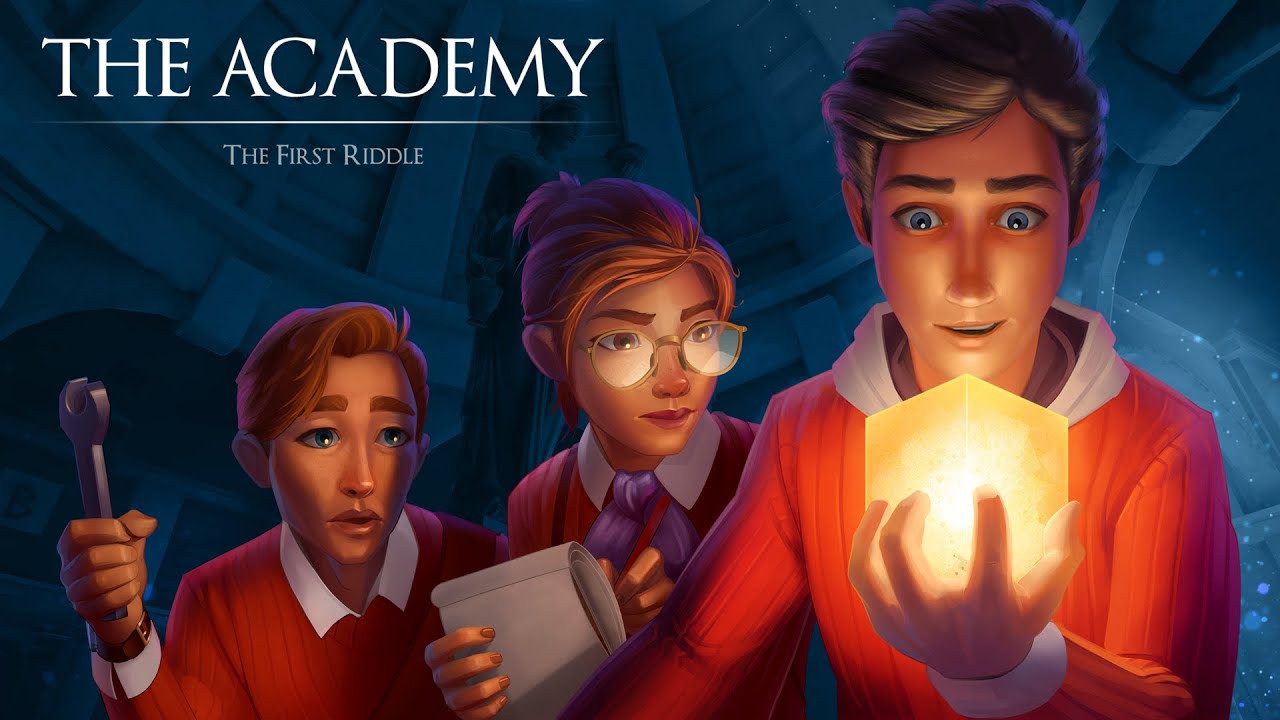The Academy: The First Riddle
Developer: Pine Studio
Publisher: Snapbreak
Platform: Android, iPad, iPhone, Mac, Windows (Reviewed)
Release Date: 19 June 2020
Price: $19.99 USD/ $29.95 AUD – Available Here
Video Review
Overview
You are Sam, a new student at the prestigious Academy in Arbour. It may be your first year at the school, but there are adventures to be had and friends to make in between the classes. The hallowed halls of the Academy hold old secrets that are now haunting the present. To prevent catastrophe, Sam will need to prove his puzzle solving skills to stop the mysterious forces threatening the school.
Story
The story in The Academy: The First Riddle is weak. The game lore is decent, but it seems to be at expense of the story itself. The writers spend so much time sketching out the history of Arbour that the characters themselves are ignored. The main character is the standard personality-free mute that video gamers are familiar with and the NPCs are only slightly better. Characters are best described as one trick ponies with the personality of a rail line, predictably traveling in a path with only the slightest bend or curve. The dialogue is equally simplistic, leaning heavily on tropes and predictability. The plot itself is bordering on the ridiculous. A variety of small plot holes litter the game, and the adults at the school seem to be oblivious to the extreme. The writing is filled with minor grammar and spelling errors. While the lore is interesting on its own, the dull story and lousy writing makes The Academy a total slog.
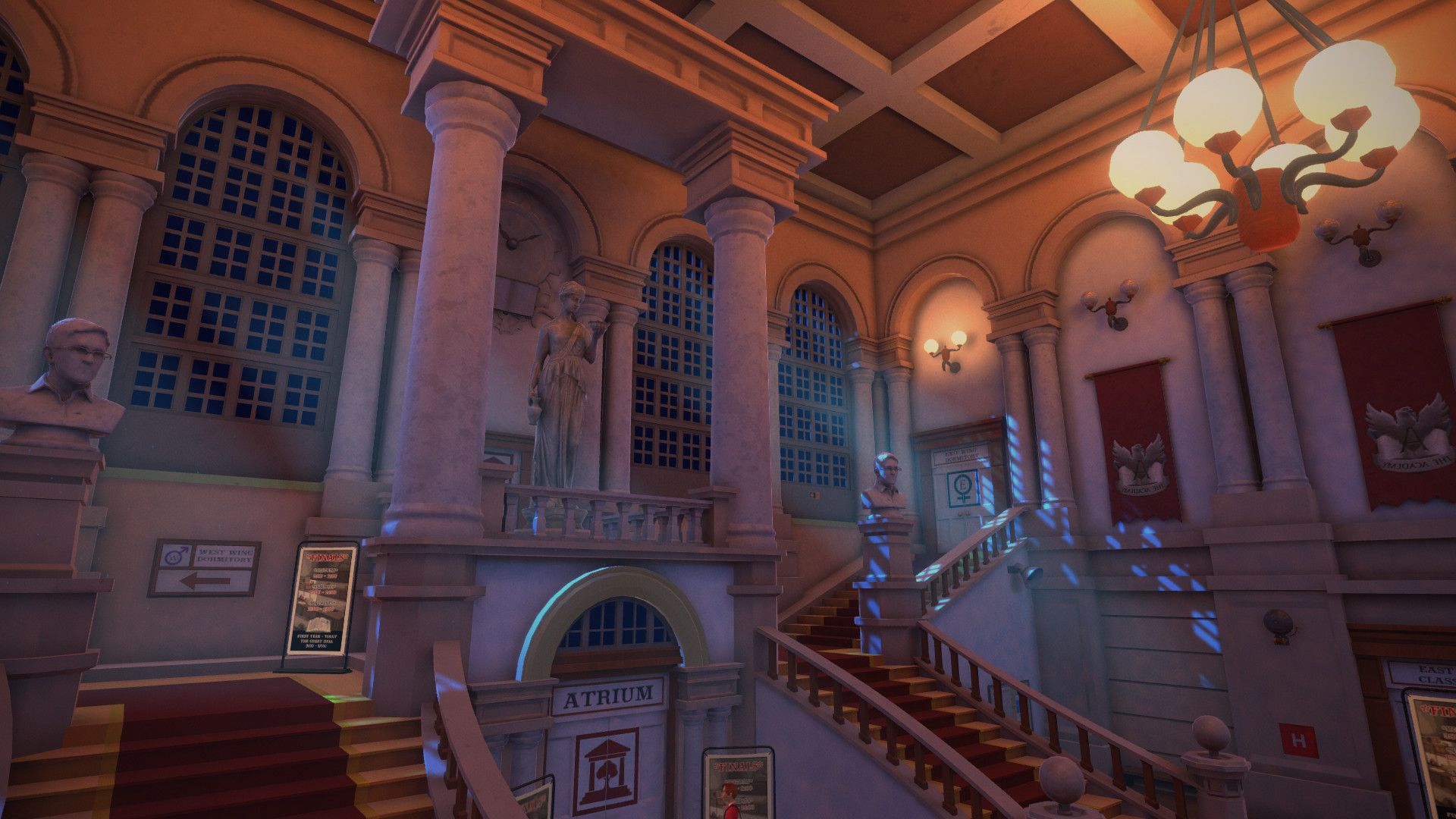
Gameplay
The Academy: The First Riddle breaks down into three tasks: logic puzzles, fetch quests, and reading comprehension quizzes. Puzzles take up a lion’s share of the content. Almost all of the puzzles are 2D puzzles that could be found in any puzzle book at your local or online bookstore. Each puzzle screen actually contains two puzzles. The first puzzle is mandatory to move forward in the game. The second is supposed to be more challenging, but in practice the difference is only the type of puzzle.
The puzzle difficulty is at a good place. The difficulty is generally consistent throughout the game. The puzzles test a variety of skills that can be done in a 2D format. Almost all the puzzles are multiple choice, which means all puzzles can be brute forced with a little patience as long as the player does not care about the score
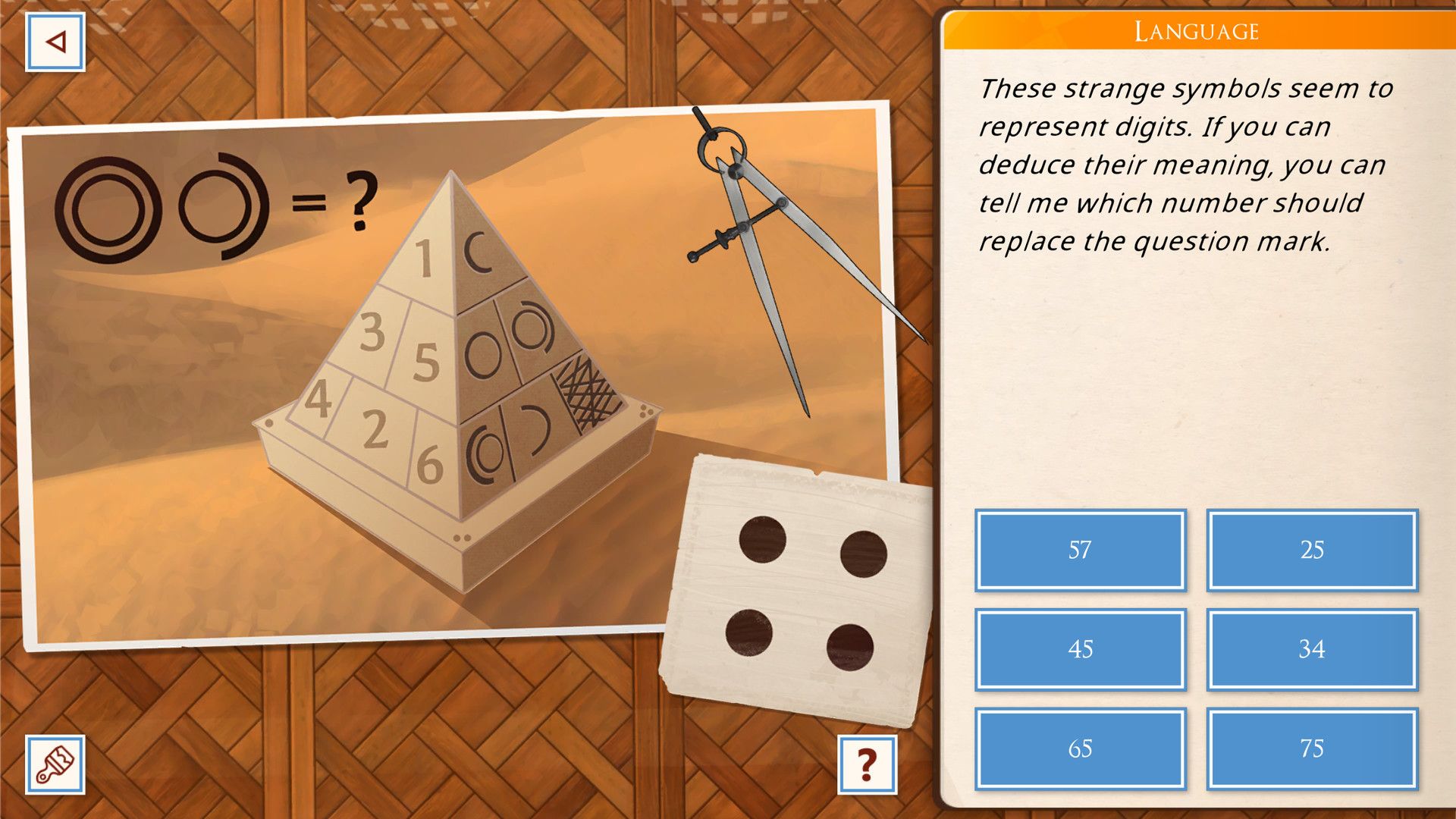
The game offers a decent set of tools for solving puzzles. There are tools for measuring distance and making notes on the puzzle space. It’s much easier than trying to find some scrap paper and a pencil in person. The tools can be awkward to use though as the transition between the puzzle space and the answer space is not always consistent. I would prefer to see the tools disabled completely in the solution area and on top of the answer arrow. Measuring smaller vertical distances is also difficult to do as the ruler never seems to appear. There is a good hint system that usually gives practical clues for how to solve the puzzle without actually handing the answer on a plate. There are a few puzzles where the hint is unhelpful and the explanation is useless. I really like that the puzzle logic is explained at the end of each puzzle. There were several times where the logic I used to solve the puzzle or narrow the answer to two or three possible solutions was off. Learning how the logic was designed was helpful for future puzzles.
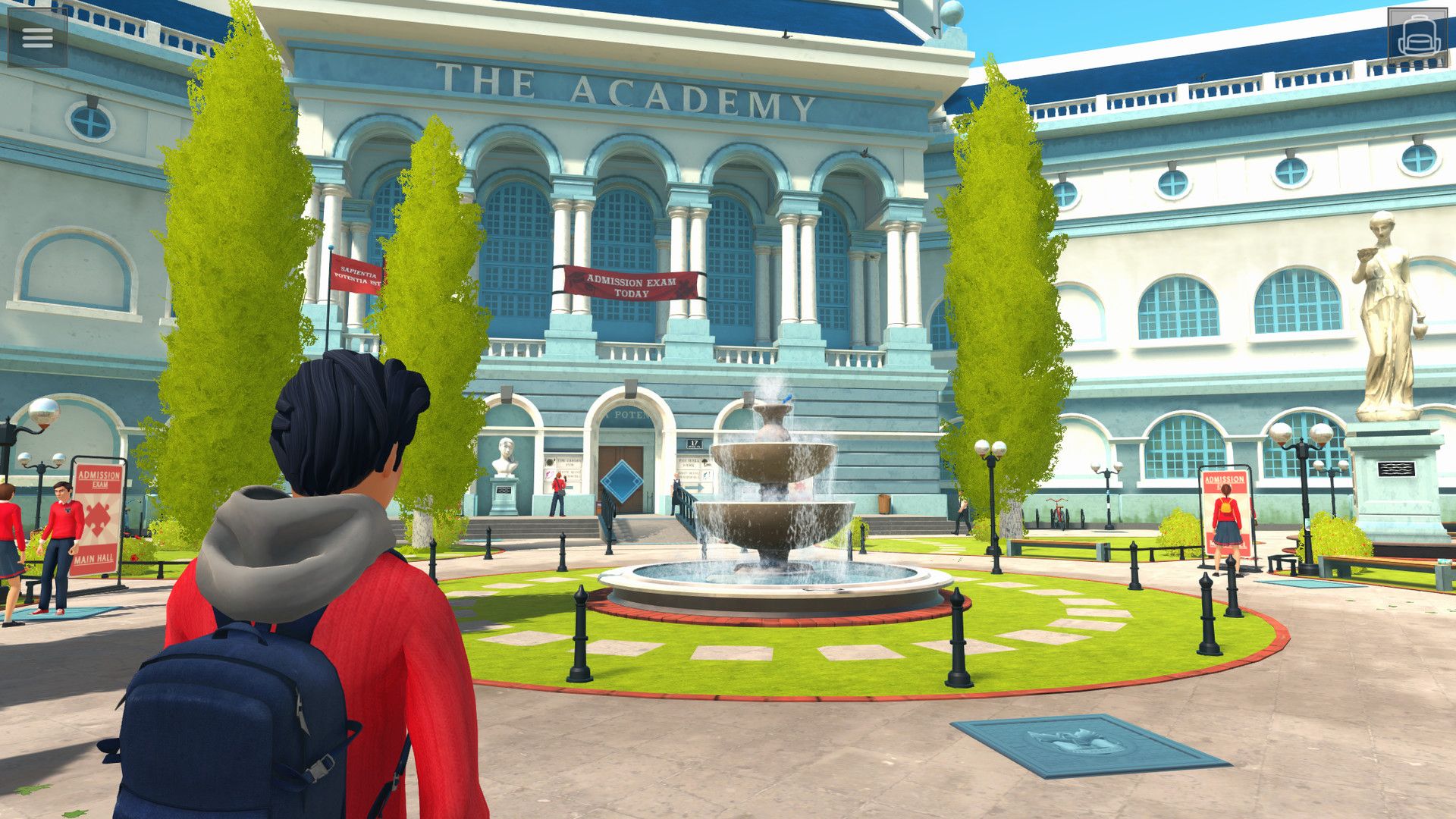
The other two tasks take up a smaller portion of the game. Often times NPCs will send players to go fetch items. If the player is lucky, they will have to solve a puzzle, otherwise it is a dull jog somewhere on campus to pick up an item and return it. The classes in game are only slightly more interesting. Each class has a textbook with three to five chapters. Each chapter is approximately two paragraphs long with a bunch of facts on a specific topic. Each class will assign one chapter to read, then the teacher will give two or three reading comprehension questions about the assigned reading. Each question is multiple choice with only two options, so they are not taxing at all. The class is then finished with another puzzle. While these sections are not hard, they do help create the school atmosphere for the game and provide a lore building opportunity.
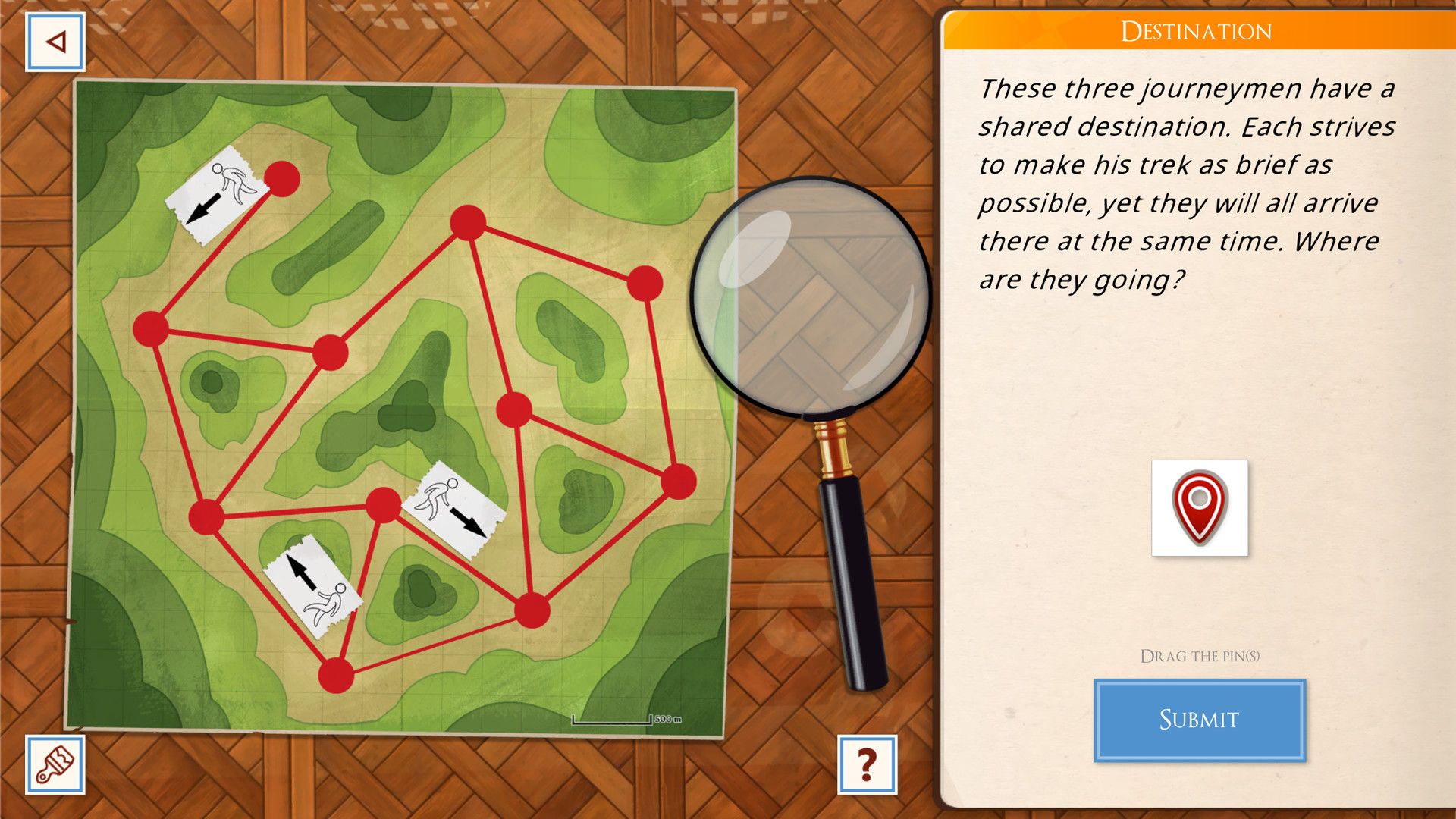
The controls are not good in The Academy: The First Riddle. There is no way to edit key binds. The menus are clunky at times. For example, when players pull up a classroom menu, reviewing the textbook and exiting will send the player into the game instead of the menu the player was just in. Following NPCs in certain areas is frustrating as they will automatically stop moving if the player is facing them within a certain range. The distance is too generous, as I ran into many NPCs suddenly stopping and blocking my path.
The Academy: The First Riddle is dreadfully boring. The quests fall into a predictable pattern very quickly. The puzzles get a little repetitive as the developers are severely limited by the 2D medium. The main story puzzle is in 3D, but the puzzle is repeated over and over again with different pieces. The game quickly boils down to run here, do a puzzle, run there, do a slightly different puzzle, and then do it all over again.
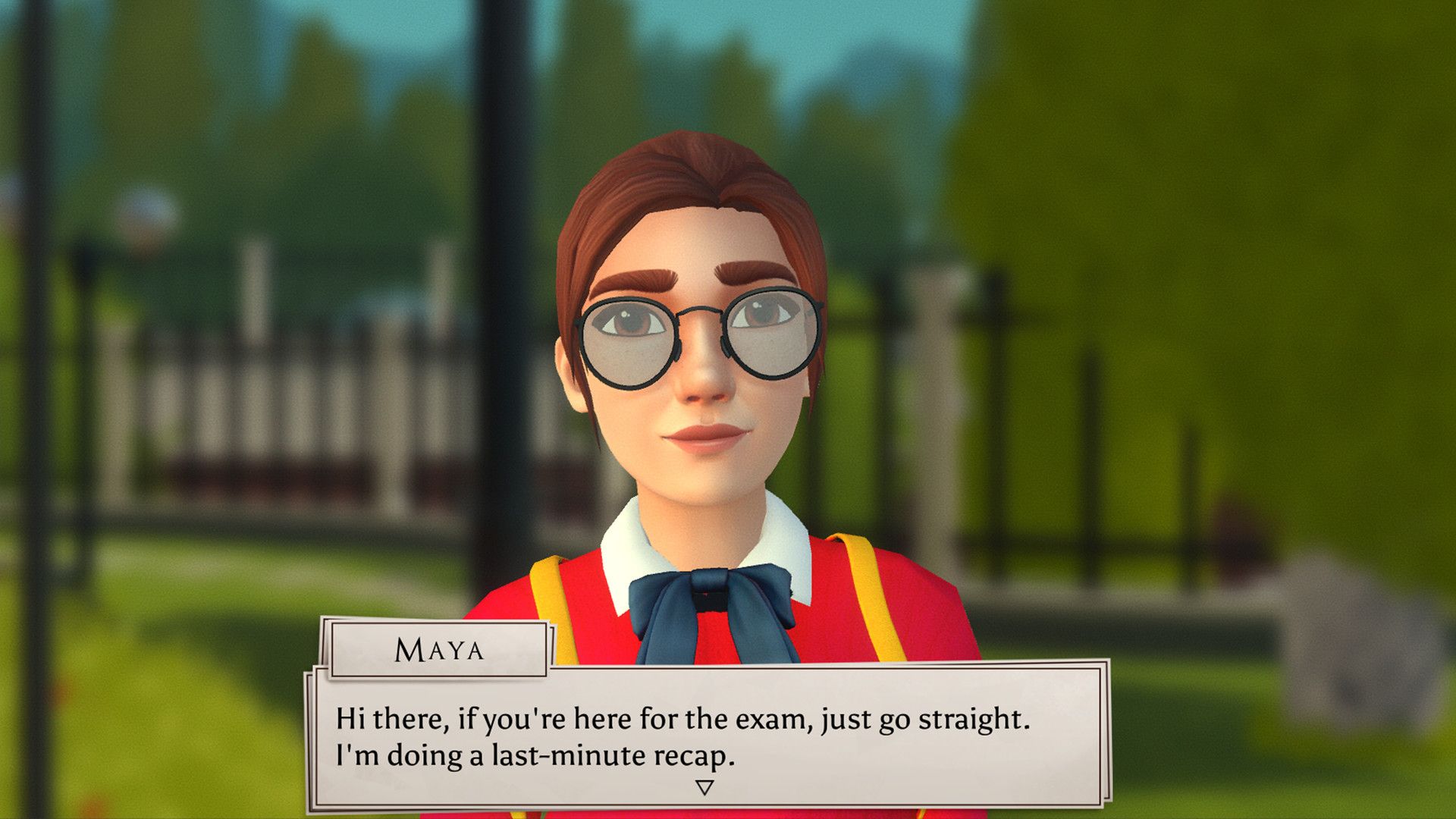
Visuals
The graphical style is influenced by the Harry Potter games and Bully with none of the charm. The Academy grounds feels very generic save for a few of the crazy machines found in the game. Student models are reused and look rather dated at times. The cut scenes have a nicer animated look, though the art style feels inconsistent at times. The animations are generally poor. They look awkward or just plain uncomfortable for a human body. Many of the animations are unnatural in a way that look like they were directly copied from The Sims and other games from the early 2000s. While the art style is cartoony, the animations are just too weird for the setting.
Audio
The audio experience is passable. The sound effects are okay, but a bit limited in quantity. There is no voice acting, so the game relies solely on dialogue boxes. The soundtrack is decent, as it is filled with low key video game-type music deigned to help players focus.

Overall
I don’t think there will be a second riddle for The Academy: The First Riddle. The puzzles are limited by the 2D nature. The gameplay is dull due to its repetitiveness. While the lore is enjoyable, everything else involving the writing is dreadful. The audio is passable, but the visuals are dated in comparison. For the price of the game, people are much better served ordering a puzzle book and a good young adult novel from their local bookstore.
Capsule Computers review guidelines can be found here.


